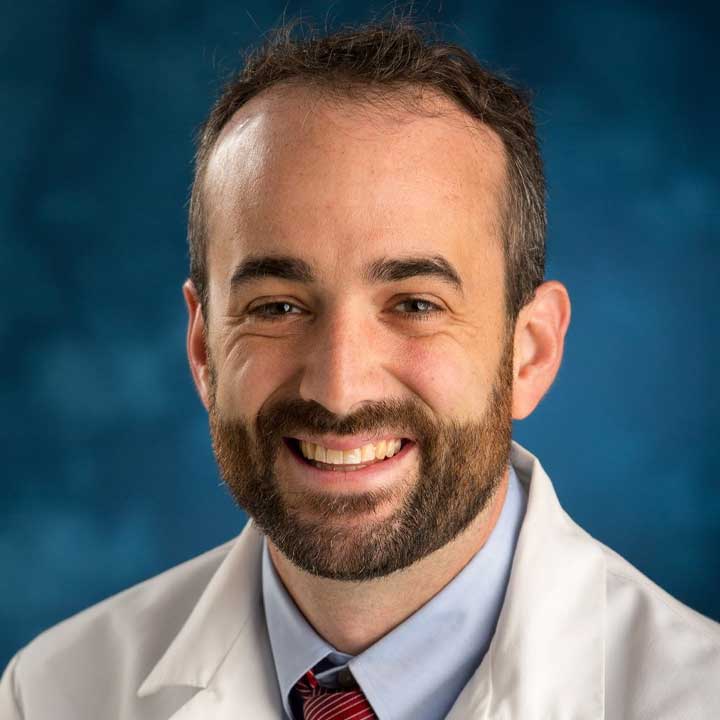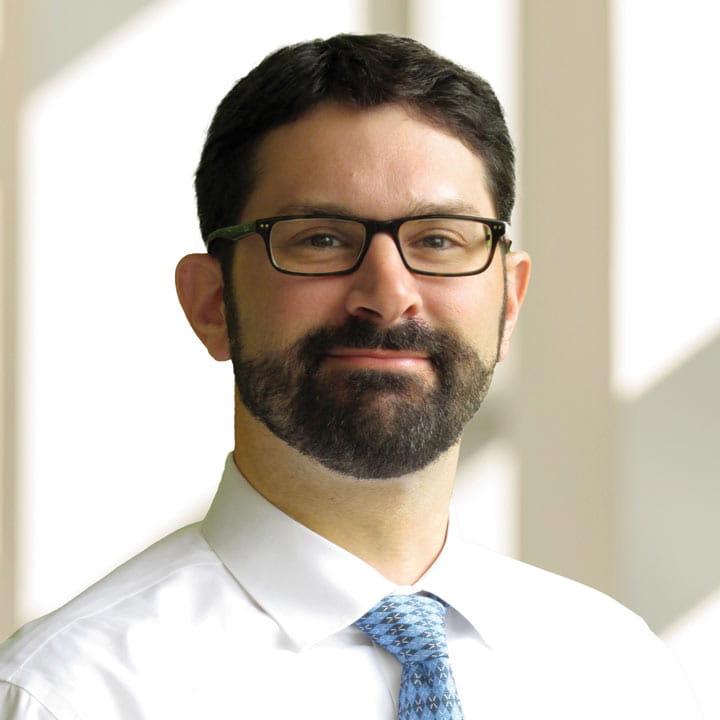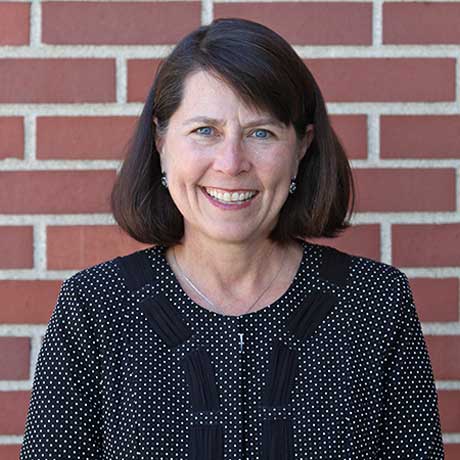

CATALYST Clinical Scholars Program overview
The goal of this program is to prepare, develop, and mentor clinician researchers to engage in robust health services and implementation science research. Clinical Scholars will receive the necessary support to begin to develop a research program during their training and mentorship years with the goal of becoming productive independent researchers at program completion.
- The CCSP will accept four to six clinicians as part of a two-year clinical scholar training program.
- Some of the available spots are funded by ACCELERATE OSU, a T32 postdoctoral training grant funded by the Agency for Healthcare Research and Quality.
- Participants will receive close mentoring from experienced Health Services and Implementation Science faculty researchers.
- The program offers a core curriculum for clinical scholars that results in the development of a research grant at the conclusion of the CCSP.
- Weekly sessions will guide the development of scholars’ research and leadership skills.
- The program offers multiple training tracks, including options to pursue a master's degree.
To apply for the program, potential candidates should (1) complete the application through the link below; (2) submit a CV; and (3) submit a letter describing their career goals, their specific research goals, and their proposed mentorship plan outline. The proposed mentorship plan outline may involve naming specific individuals who are willing to serve as content, methodological, or career mentors, or it may be an outline listing specific areas in which the applicant will need support in identifying mentors. CVs and letters should be emailed to lauren.teuschler@osumc.edu.
Apply to the 2026-2027 program
Our leadership
Jim Burke, MD, MS
Co-Director of Neurology Health Services Research, Professor of Neurology, Endowed Professor of Health Services Research
Dr. Jim Burke, MD, MS, is the Co-Director of the Division of Health Services Research in the Department of Neurology and Professor of Neurology with tenure. Dr. Burke trained in neurology and vascular neurology at the University of Michigan, completed health services research training through the Robert Wood Johnson Clinical Scholars Program, and served on the faculty of the University of Michigan before joining The Ohio State University to co-direct the HSR Neurology Division and the CCSP.
Dr. Burke has been continuously fully funded by the National Institutes of Health, has published over 200 publications in peer reviewed journals, has worked as a fellow at the National Academy of Medicine, and has been recognized for research accomplishments by the American Academy of Neurology. His research has focused on a variety of health services research topics including individualizing treatment decisions, optimizing systems of care for neurologic conditions, understanding racial disparities in stroke outcomes, understanding how end-of-life preferences influence care, and exploring how patient preferences affect health outcomes. Dr. Burke has methodological expertise in a variety of quantitative analyses and with simulation analyses.
Dan Jonas, MD, MPH
Director of the Division of General Internal Medicine and Geriatrics, Director of the Primary Care Research Fellowship, Professor of Medicine with tenure, Endowed Professor of Health Services Research
Dr. Jonas is a primary care physician, health services researcher, and Director of the Division of General Internal Medicine. Dr. Jonas’ primary research interests and areas of expertise include preventive services delivered in primary care, unhealthy alcohol use, implementation, critical appraisal and synthesis of health literature, and training health services researchers. Dr. Jonas has led multiple clinical trials and numerous projects critically evaluating the scientific evidence on health care and health policy topics for groups making national recommendations, such as the Effective Healthcare Program of the Agency for Healthcare Research and Quality (AHRQ) and the U.S. Preventive Services Task Force (USPSTF). He has over 100 publications, including in the Journal of the American Medical Association (JAMA), Annals of Internal Medicine, JAMA Internal Medicine, American Journal of Preventive Medicine, Journal of General Internal Medicine, Systematic Reviews, Medical Care, and Medical Decision Making. Dr. Jonas has served as Principal Investigator or Co-Investigator on grants or contracts from AHRQ, the National Institutes of Health, and the Patient-Centered Outcomes Research Institute (PCORI).
Prior to joining The Ohio State University in December 2020, Dr. Jonas was at the University of North Carolina at Chapel Hill for over 15 years where he worked as the Section Chief for Research in the Division of General Medicine and Clinical Epidemiology and as the Deputy Director for Research, Director of the Program on Medical Practice and Prevention, and Director of the Primary Care Research Fellowship at the Cecil G. Sheps Center for Health Services Research. He has served as co-Director of the RTI-UNC Evidence-based Practice Center since 2012. Dr. Jonas received his MD from Ohio State and his MPH from the University of North Carolina at Chapel Hill.
Ann Scheck McAlearney, ScD, MS
Executive Director of CATALYST, Associate Dean for Health Services Research, and Distinguished Professor in the Department of Family and Community Medicine in Ohio State's College of Medicine
Dr. McAlearney is the Executive Director of CATALYST, Associate Dean for Health Services Research, and Distinguished Professor in the Department of Family and Community Medicine in Ohio State's College of Medicine. She also holds appointments as a professor of health services management and policy in the College of Public Health and is a professor of biomedical informatics and pediatrics in the College of Medicine at The Ohio State University. She has over 30 years of health services research experience and has been actively involved in both performing research and disseminating research results to academic and practitioner audiences.
Dr. McAlearney enjoys collaborative research projects and engaging clinicians in health service research as well as mentoring junior faculty in their research endeavors. She is internationally known for her expertise in both qualitative and mixed methods analyses, and she has been continuously funded for over 20 years. Dr. McAlearney has authored over 300 peer-reviewed publications, 11 books/edited books, and more than 100 book chapters. Dr. McAlearney has served as a grant reviewer for 18 years including for the Agency for Healthcare Research and Quality, the National Institutes of Health, the Patient-Centered Outcomes Research Institute, and the National Science Foundation. In addition to co-leading the Center to STOP COVID at Ohio State (U54), Dr. McAlearney leads an R01 focused on applying management practices to prevent transmission of healthcare-associated infections, and she co-leads the “Better Birth Outcomes Through Technology, Education and Reporting (BETTER)” project funded by the American Heart Association as part of their newly established Health Equity Research Network. Her ongoing research focuses on addressing care disparities, information technology innovations in health care, population health management, quality improvement, and organizational development. Dr. McAlearney received her undergraduate and graduate degrees from Stanford University and Harvard University’s T. H. Chan School of Public Health.
Our cohorts
Marina Beltrami Moreira, MD, PhD
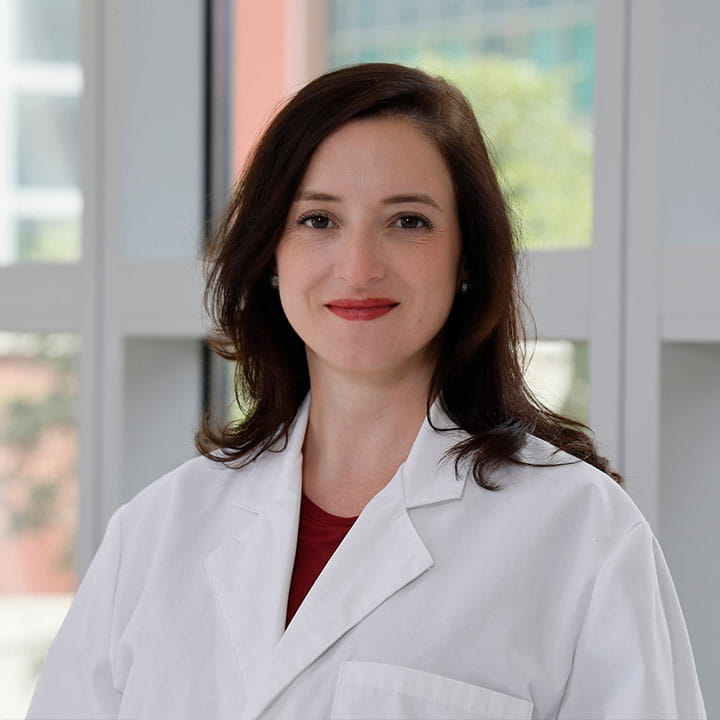 Dr. Beltrami Moreira is assistant clinical professor at the OSU College of Medicine and a hematologist at the James Cancer Hospital. Her clinical practice and research program focuses on patients with red blood cells and platelet disorders, especially auto-immune disorders affecting their blood cells. She earned her MD and PhD degrees from Universidade Federal of Rio Grande do Sul, Brazil. She completed her Internal Medicine residency at Norwalk Hospital/Yale Medical School and clinical fellowship in Hematology and Medical Oncology at New York-Presbyterian Hospital/Weill Cornell Medicine.
Dr. Beltrami Moreira is assistant clinical professor at the OSU College of Medicine and a hematologist at the James Cancer Hospital. Her clinical practice and research program focuses on patients with red blood cells and platelet disorders, especially auto-immune disorders affecting their blood cells. She earned her MD and PhD degrees from Universidade Federal of Rio Grande do Sul, Brazil. She completed her Internal Medicine residency at Norwalk Hospital/Yale Medical School and clinical fellowship in Hematology and Medical Oncology at New York-Presbyterian Hospital/Weill Cornell Medicine.
She has published original articles throughout the spectrum of translational research and now aims to build an independent clinical and health outcomes research program that will inform how we care for distinct populations with auto-immune blood disorders, including older adults and pregnant persons.
Meaghan Costello, MD
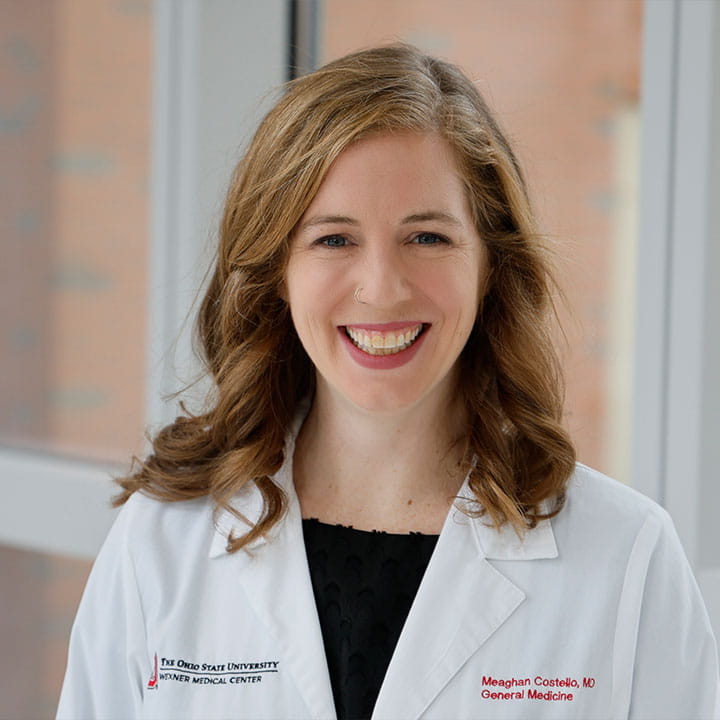 Dr. Meaghan Costello is a primary care physician at Care Point East. She was selected as a Fellow-to-Faculty scholar in the Division of General Internal Medicine and is currently working to complete a master’s degree in public health. Her research focuses on strategies to reduce health care disparities driven by social determinants of health, particularly those affecting urban communities in central Ohio. She is currently working to implement expanded cervical cancer screening within the Division of General Internal Medicine, in addition to researching the impact of loss of medication coverage or insurance changes for patient outcomes.
Dr. Meaghan Costello is a primary care physician at Care Point East. She was selected as a Fellow-to-Faculty scholar in the Division of General Internal Medicine and is currently working to complete a master’s degree in public health. Her research focuses on strategies to reduce health care disparities driven by social determinants of health, particularly those affecting urban communities in central Ohio. She is currently working to implement expanded cervical cancer screening within the Division of General Internal Medicine, in addition to researching the impact of loss of medication coverage or insurance changes for patient outcomes.
Dr. Costello is a Columbus native. She completed medical school at the University of Cincinnati College of Medicine then moved to Minnesota to complete an internal medicine residency program and hospitalist year at Mayo Clinic. She returned to Ohio in 2023 as a faculty member within the Division of General Internal Medicine and is excited to find ways to serve the community.
Shari Duarte, MD
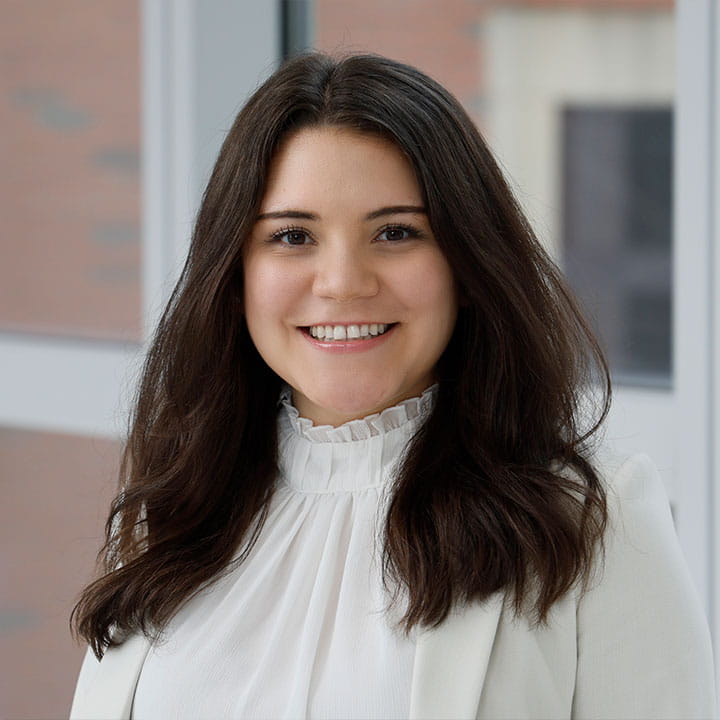 Dr. Shari Duarte is a Cognitive/Behavioral Neurologist subspecialized in Palliative Care. She completed her medical school, residency, and fellowship years at The Ohio State University (OSU). She has a background in biochemistry with prior research training at the National Institutes of Health (NIH) and is now doing clinical research at OSU. Her focus is in Neuropalliative Care and is dedicated to enhancing quality of life for patients living with serious neurological illnesses such as dementia, Lewy body disease, and Amyotrophic Lateral Sclerosis (ALS). Dr. Duarte is currently working on improving symptom management and emergent care delivery for patients with dementia. Dr. Duarte is proud to be a clinical scholar in the CATALYST program and is working towards her master's degree in Medical Science (MMS) in the Health Services Research track.
Dr. Shari Duarte is a Cognitive/Behavioral Neurologist subspecialized in Palliative Care. She completed her medical school, residency, and fellowship years at The Ohio State University (OSU). She has a background in biochemistry with prior research training at the National Institutes of Health (NIH) and is now doing clinical research at OSU. Her focus is in Neuropalliative Care and is dedicated to enhancing quality of life for patients living with serious neurological illnesses such as dementia, Lewy body disease, and Amyotrophic Lateral Sclerosis (ALS). Dr. Duarte is currently working on improving symptom management and emergent care delivery for patients with dementia. Dr. Duarte is proud to be a clinical scholar in the CATALYST program and is working towards her master's degree in Medical Science (MMS) in the Health Services Research track.
Dan Gilmore, PhD, RDN/LD
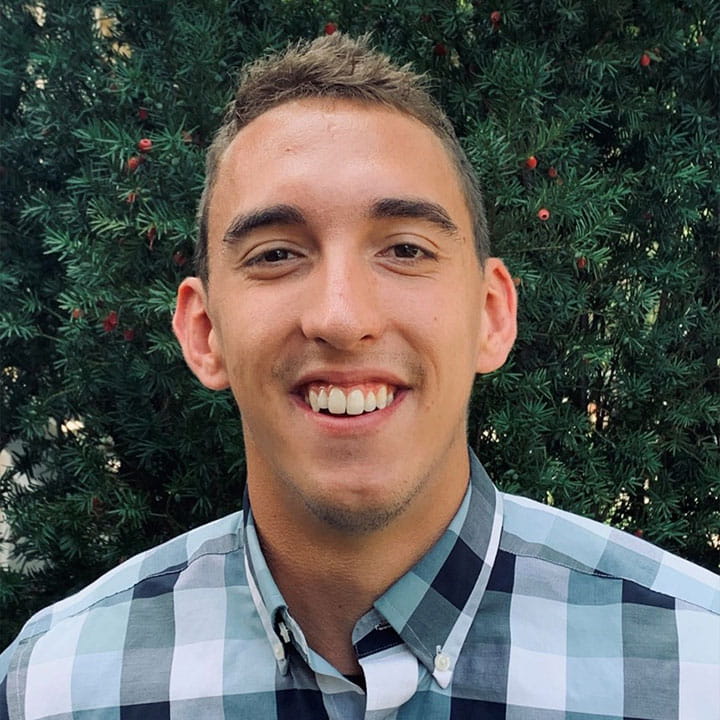 Dr. Dan Gilmore is a postdoctoral scholar in CATALYST and is a registered dietitian nutritionist. His doctoral work focused on optimizing community healthcare services for adults with developmental disabilities. He is presently engaged in a variety of health services research projects involving collaboration between the healthcare and social needs systems and has additional research interests in improving nutrition-related outcomes among people with disabilities and supporting the community dementia care workforce. Before beginning his graduate education, he worked as a clinical dietitian at a community primary care clinic in Columbus, Ohio. Dr. Gilmore completed his bachelor’s, master’s, and PhD at The Ohio State University in the School of Health and Rehabilitation Sciences. He has a passion for mentorship and team science.
Dr. Dan Gilmore is a postdoctoral scholar in CATALYST and is a registered dietitian nutritionist. His doctoral work focused on optimizing community healthcare services for adults with developmental disabilities. He is presently engaged in a variety of health services research projects involving collaboration between the healthcare and social needs systems and has additional research interests in improving nutrition-related outcomes among people with disabilities and supporting the community dementia care workforce. Before beginning his graduate education, he worked as a clinical dietitian at a community primary care clinic in Columbus, Ohio. Dr. Gilmore completed his bachelor’s, master’s, and PhD at The Ohio State University in the School of Health and Rehabilitation Sciences. He has a passion for mentorship and team science.
Elizabeth Jordan MMSc, CGC
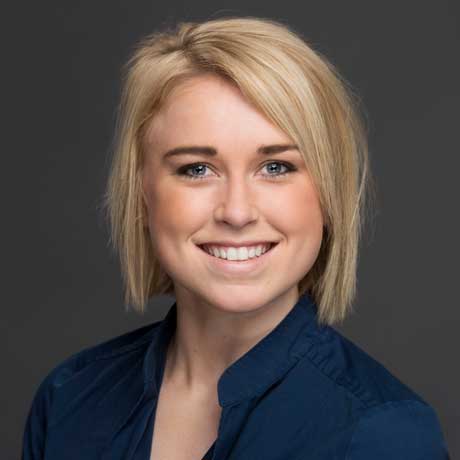 Elizabeth Jordan is a cardiovascular genetic counselor and Associate Professor in the Division of Human Genetics of the Department of Human Genetics. She completed her degree and training in Human Genetics and Genetic Counseling at Emory University. Her clinical experience since joining the OSU faculty is in the area of heritable cardiovascular diseases, inclusive of hereditary cardiomyopathy, arrhythmias, aortic disease, and coronary heart disease. Her research focus has contributed to increasing access to informative genetic information to enable diagnosis and risk mitigation of dilated cardiomyopathy. To do this, she has performed gene and variant curation for DCM-associated genes through the Clinical Genome Resource (ClinGen) Consortium, developed protocols to conduct and return genetic results related to DCM causation across a multi-site research study evaluating a diverse, family-based population, and evaluated psychological and social factors contributing to family communication of genetic risk and trust of genetic researchers within the DCM patient population.
Elizabeth Jordan is a cardiovascular genetic counselor and Associate Professor in the Division of Human Genetics of the Department of Human Genetics. She completed her degree and training in Human Genetics and Genetic Counseling at Emory University. Her clinical experience since joining the OSU faculty is in the area of heritable cardiovascular diseases, inclusive of hereditary cardiomyopathy, arrhythmias, aortic disease, and coronary heart disease. Her research focus has contributed to increasing access to informative genetic information to enable diagnosis and risk mitigation of dilated cardiomyopathy. To do this, she has performed gene and variant curation for DCM-associated genes through the Clinical Genome Resource (ClinGen) Consortium, developed protocols to conduct and return genetic results related to DCM causation across a multi-site research study evaluating a diverse, family-based population, and evaluated psychological and social factors contributing to family communication of genetic risk and trust of genetic researchers within the DCM patient population.
Hayoung Ko, PhD
 Dr. Ko is a postdoctoral scholar in the Department of Psychiatry and Behavioral Health with the Suicide and Trauma Reduction Initiative (STRIVE) team. Her research focuses on developing and refining brief, transdiagnostic interventions for suicide prevention and internalizing disorders, and on understanding the mechanisms of change underlying these interventions. Using dissemination and implementation science, she aims to bridge the science-practice gap and improve real-world uptake and outcomes. Clinically, she provides psychotherapy to patients at risk of suicide as well as those experiencing trauma-related, anxiety, and mood disorders. She earned her PhD in clinical psychology from Virginia Tech, completed her predoctoral internship at The Ohio State University, and received her master’s and bachelor’s degrees in psychology from Korea University, South Korea.
Dr. Ko is a postdoctoral scholar in the Department of Psychiatry and Behavioral Health with the Suicide and Trauma Reduction Initiative (STRIVE) team. Her research focuses on developing and refining brief, transdiagnostic interventions for suicide prevention and internalizing disorders, and on understanding the mechanisms of change underlying these interventions. Using dissemination and implementation science, she aims to bridge the science-practice gap and improve real-world uptake and outcomes. Clinically, she provides psychotherapy to patients at risk of suicide as well as those experiencing trauma-related, anxiety, and mood disorders. She earned her PhD in clinical psychology from Virginia Tech, completed her predoctoral internship at The Ohio State University, and received her master’s and bachelor’s degrees in psychology from Korea University, South Korea.
Karan Rai, MD, MHA
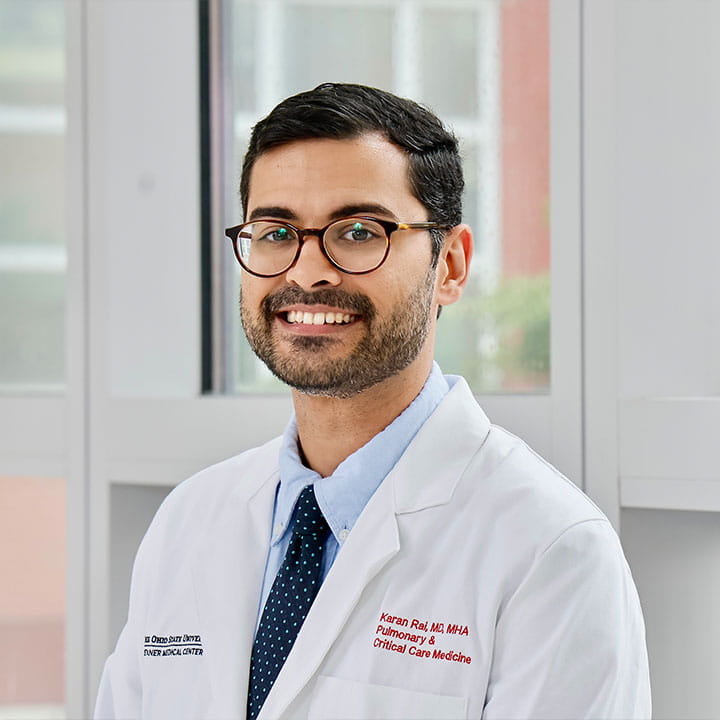 Dr. Karan Rai is a fellow in Pulmonary and Critical Care Medicine in the Department of Internal Medicine. His research focuses on optimizing hospital care delivery, studied through the lens of scarce resource utilization. His work has examined ICU outcomes during off-peak hours, hospital mortality during COVID-19 surges, and clinician workload to guide evidence-based work design. He is additionally engaged in quality improvement efforts, with prior work including a grant-funded project to streamline clinical practices using data-driven decision making to reduce hospital length-of-stay. His current research agenda centers on the use of remote monitoring technology to improve ICU clinical and operational outcomes. Dr. Rai received a Master of Health Administration from The Ohio State University, his MD at the Geisel School of Medicine at Dartmouth, and completed a residency in internal medicine at the University of Colorado.
Dr. Karan Rai is a fellow in Pulmonary and Critical Care Medicine in the Department of Internal Medicine. His research focuses on optimizing hospital care delivery, studied through the lens of scarce resource utilization. His work has examined ICU outcomes during off-peak hours, hospital mortality during COVID-19 surges, and clinician workload to guide evidence-based work design. He is additionally engaged in quality improvement efforts, with prior work including a grant-funded project to streamline clinical practices using data-driven decision making to reduce hospital length-of-stay. His current research agenda centers on the use of remote monitoring technology to improve ICU clinical and operational outcomes. Dr. Rai received a Master of Health Administration from The Ohio State University, his MD at the Geisel School of Medicine at Dartmouth, and completed a residency in internal medicine at the University of Colorado.
Sana Sughra, MD, MPH
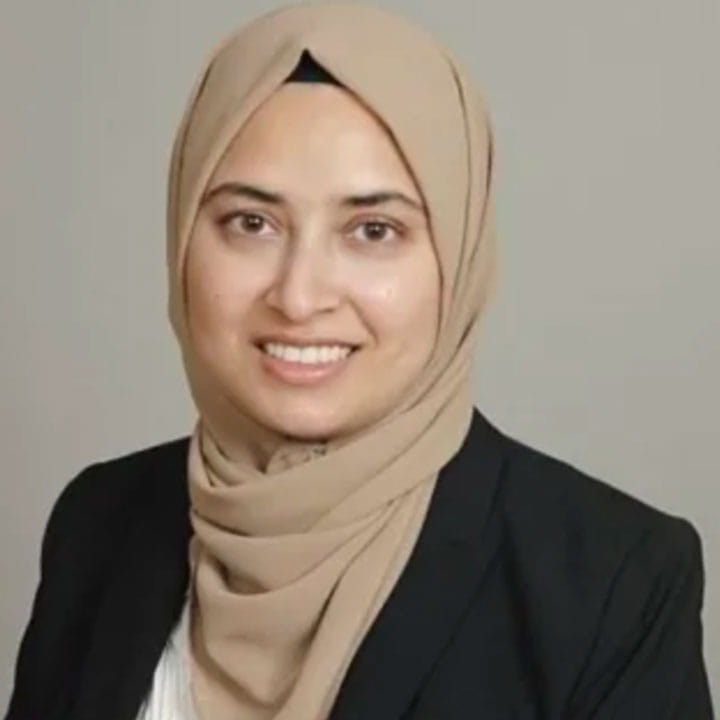 Sana Sughra is a research fellow in General Internal Medicine. She completed her residency in internal medicine at The Ohio State University. She also received her master’s degree in public health from Ohio State. She is interested in academic research and excited to find the opportunity to translate the skills into real-world projects and learn new skills. Her primary area of research is in cardiovascular diseases, which involves exploring the effects of novel therapies on cardiovascular outcomes and implementing evidence-based medicine to deliver high-value patient care.
Sana Sughra is a research fellow in General Internal Medicine. She completed her residency in internal medicine at The Ohio State University. She also received her master’s degree in public health from Ohio State. She is interested in academic research and excited to find the opportunity to translate the skills into real-world projects and learn new skills. Her primary area of research is in cardiovascular diseases, which involves exploring the effects of novel therapies on cardiovascular outcomes and implementing evidence-based medicine to deliver high-value patient care.
Brittany Waterman, MD
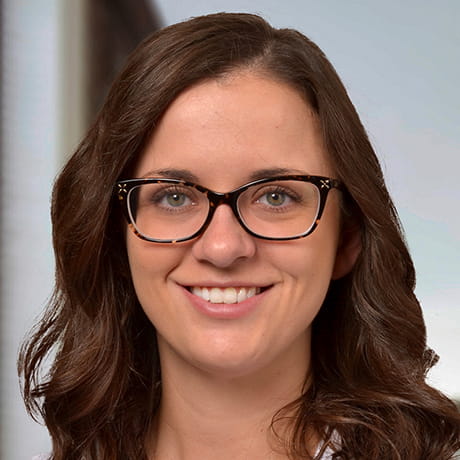 Dr. Brittany Waterman is an Associate Professor at The Ohio State University Wexner Medical Center in the Division of Palliative Medicine. She received her MD from The Ohio State University College of Medicine, then completed her Internal Medicine residency at Vanderbilt University. She returned to OSU to complete her fellowship in Hospice & Palliative Medicine, after which she joined the faculty, where she practices inpatient Palliative Medicine. She is currently working towards her master's degree in Medical Science (MMS) in the Health Services Research track. Her research focuses on optimizing the delivery of Palliative Care to patients with advanced cancer, with specific attention to hepatocellular carcinoma.
Dr. Brittany Waterman is an Associate Professor at The Ohio State University Wexner Medical Center in the Division of Palliative Medicine. She received her MD from The Ohio State University College of Medicine, then completed her Internal Medicine residency at Vanderbilt University. She returned to OSU to complete her fellowship in Hospice & Palliative Medicine, after which she joined the faculty, where she practices inpatient Palliative Medicine. She is currently working towards her master's degree in Medical Science (MMS) in the Health Services Research track. Her research focuses on optimizing the delivery of Palliative Care to patients with advanced cancer, with specific attention to hepatocellular carcinoma.
Kristin Weeks, MD, PhD
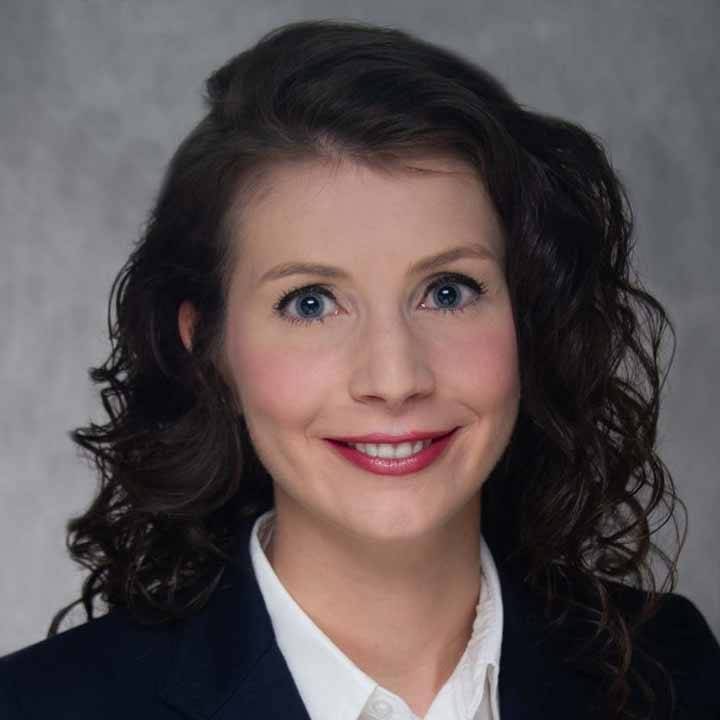 Dr. Weeks is a fellow in the Physician Scientist Training Program (PSTP) and Hematology and Medical Oncology Fellowship Program at The Ohio State University. Dr. Weeks conducts epidemiology and health services research with a special interest in understanding healthcare delivery disparities in the Midwest. She is currently investigating access to sickle cell care in the Midwest. She received her MD and PhD in Epidemiology from the University of Iowa. She completed her residency in Internal Medicine at The Ohio State University.
Dr. Weeks is a fellow in the Physician Scientist Training Program (PSTP) and Hematology and Medical Oncology Fellowship Program at The Ohio State University. Dr. Weeks conducts epidemiology and health services research with a special interest in understanding healthcare delivery disparities in the Midwest. She is currently investigating access to sickle cell care in the Midwest. She received her MD and PhD in Epidemiology from the University of Iowa. She completed her residency in Internal Medicine at The Ohio State University.
James P. Crick Jr., PT, DPT, PhD
 Dr. James P. Crick Jr. is a clinician scientist with broad health services research interests that include understanding variations in health care service delivery, enhancing health outcomes through quality improvement, and optimizing peri-hospital care for older adults, including hospital care and post-discharge transitional care. Dr. Crick received his PhD from The Ohio State University in 2024 and his Doctor of Physical Therapy (DPT) degree from Bellarmine University in 2015.
Dr. James P. Crick Jr. is a clinician scientist with broad health services research interests that include understanding variations in health care service delivery, enhancing health outcomes through quality improvement, and optimizing peri-hospital care for older adults, including hospital care and post-discharge transitional care. Dr. Crick received his PhD from The Ohio State University in 2024 and his Doctor of Physical Therapy (DPT) degree from Bellarmine University in 2015.
Jill Davis, PhD, MS
 Dr. Jill Davis is a postdoctoral scholar in CATALYST. Her research interests include implementation science, public policy and management, and the intersection of public health and public safety with a focus on structural inequalities. She is currently working on the HEALing Communities Study, which aims to reduce opioid overdose deaths and increase recovery treatment in four states, including Ohio. Her work centers on stigma, health equity, and policy related to community implementation outcomes. She is also working on projects aimed to reduce racial disparities among infants and women born into poverty in Ohio. Dr. Davis recently completed her PhD in Public Affairs from the John Glenn College of Public Affairs at The Ohio State University, and she holds a master’s degree in Gender and Social Policy from The London School of Economics and Political Science.
Dr. Jill Davis is a postdoctoral scholar in CATALYST. Her research interests include implementation science, public policy and management, and the intersection of public health and public safety with a focus on structural inequalities. She is currently working on the HEALing Communities Study, which aims to reduce opioid overdose deaths and increase recovery treatment in four states, including Ohio. Her work centers on stigma, health equity, and policy related to community implementation outcomes. She is also working on projects aimed to reduce racial disparities among infants and women born into poverty in Ohio. Dr. Davis recently completed her PhD in Public Affairs from the John Glenn College of Public Affairs at The Ohio State University, and she holds a master’s degree in Gender and Social Policy from The London School of Economics and Political Science.
Joshua Gordon, MD
 Dr. Joshua Gordon is a pulmonary and critical care physician in the Department of Internal Medicine. His research focus is on understanding and improving patient function and quality of life after critical illness, limiting the effect that post-ICU (intensive care unit) disability has on patients. To do this, he studies how muscle health and physical function changes with critical illness and during recovery. He received his MD from the University of Arizona College of Medicine – Phoenix. He completed his Residency, Chief Residency, and Fellowship at The Ohio State University.
Dr. Joshua Gordon is a pulmonary and critical care physician in the Department of Internal Medicine. His research focus is on understanding and improving patient function and quality of life after critical illness, limiting the effect that post-ICU (intensive care unit) disability has on patients. To do this, he studies how muscle health and physical function changes with critical illness and during recovery. He received his MD from the University of Arizona College of Medicine – Phoenix. He completed his Residency, Chief Residency, and Fellowship at The Ohio State University.
Ra’ed S. Hailat, MD, PhD
 Dr. Hailat is a postdoctoral scholar in the Division of Health Services Research in the Department of Neurology. He is working on health services research projects related to both inpatient and outpatient neurological care.
Dr. Hailat is a postdoctoral scholar in the Division of Health Services Research in the Department of Neurology. He is working on health services research projects related to both inpatient and outpatient neurological care.
Dr. Hailat completed his PhD training in Health Services Research and Epidemiology at Michigan State University. His dissertation, which focused on stroke outcomes, was funded by a predoctoral fellowship from the American Heart Association. He also received an MPH in Epidemiology and training in Humanitarian Emergencies from the Rollins School of Public Health at Emory University. Previously, he earned his MD degree from Jordan University of Science and Technology, where he completed his general practitioner clinical training.
Dr. Hailat has expertise with data linkage, health outcomes research, prediction modelling, and comparative effectiveness studies. He is also skilled in analyzing large administrative and registry-based datasets. His research interests include clinical epidemiology, health services research, and geographic variation in stroke risk and access to specialized neurological care.
Xiaodan Hu, PhD, MA
 Dr. Hu is a postdoctoral scholar in CATALYST. She is engaged in the fields of health communication and implicit racial bias. Her primary research interests involve studying negative cognitive biases and emotion regulation strategies in individuals experiencing symptoms of depression or generalized anxiety disorder, including their influence on how an individual’s digital environment is shaped by self-selection, and analyzing the associated mental health outcomes. Dr. Hu received her master’s degree in communication from Indiana University, Bloomington, and her PhD in communication from The Ohio State University.
Dr. Hu is a postdoctoral scholar in CATALYST. She is engaged in the fields of health communication and implicit racial bias. Her primary research interests involve studying negative cognitive biases and emotion regulation strategies in individuals experiencing symptoms of depression or generalized anxiety disorder, including their influence on how an individual’s digital environment is shaped by self-selection, and analyzing the associated mental health outcomes. Dr. Hu received her master’s degree in communication from Indiana University, Bloomington, and her PhD in communication from The Ohio State University.
Sooyoung Kim, PhD, RN
 Dr. Kim is a postdoctoral scholar in CATALYST. Her research is dedicated to enhancing the quality of care for infants and children. Her doctoral work focused on nurse workload and the quality of nursing care for infants experiencing substance withdrawal in neonatal intensive care units. Currently, Dr. Kim is engaged in health services research projects concerning maternal and infant health. She earned her PhD from the College of Nursing at The Ohio State University and holds both a master’s and a bachelor’s degree in nursing science from Ewha Womans University in South Korea. Before pursuing her doctorate, she gained extensive experience as a pediatric nurse at Asan Medical Center in South Korea.
Dr. Kim is a postdoctoral scholar in CATALYST. Her research is dedicated to enhancing the quality of care for infants and children. Her doctoral work focused on nurse workload and the quality of nursing care for infants experiencing substance withdrawal in neonatal intensive care units. Currently, Dr. Kim is engaged in health services research projects concerning maternal and infant health. She earned her PhD from the College of Nursing at The Ohio State University and holds both a master’s and a bachelor’s degree in nursing science from Ewha Womans University in South Korea. Before pursuing her doctorate, she gained extensive experience as a pediatric nurse at Asan Medical Center in South Korea.
Giovanni Lujan, MD
 Dr. Lujan is a clinical associate professor of pathology with a dual board certification in anatomic and clinical pathology from the American Board of Pathology and a certification by the American Board of Artificial Intelligence in Medicine. At The Ohio State University, he has dual clinical and administrative roles as a surgical pathologist subspecializing in gastrointestinal pathology, and he serves as the director of the Division of Digital and Computational Pathology and the OSU Digital Scan Center.
Dr. Lujan is a clinical associate professor of pathology with a dual board certification in anatomic and clinical pathology from the American Board of Pathology and a certification by the American Board of Artificial Intelligence in Medicine. At The Ohio State University, he has dual clinical and administrative roles as a surgical pathologist subspecializing in gastrointestinal pathology, and he serves as the director of the Division of Digital and Computational Pathology and the OSU Digital Scan Center.
Dr. Lujan’s professional interests include advancing pathology into the era of precision medicine by testing and deploying AI tools into daily clinical workflow. He has several peer reviewed articles and has delivered national and international presentations on these topics. Dr. Lujan earned his MD from the University of El Salvador School of Medicine in San Salvador, and he completed a pathology residency program at the University of Texas Southwestern Medical Center and a surgical pathology fellowship at the Johns Hopkins University School of Medicine in Baltimore.
Alexandra Wichmann, MD
 Dr. Alexandra Wichmann is a physician who works to alleviate suffering. She is currently a second year Pulmonary and Critical Care fellow at The Ohio State University, where she previously completed a fellowship in Palliative Medicine. She completed medical school and Internal Medicine Residency in Lubbock, Texas. Most of her adult life was spent in Texas (where she learned a love of queso), and she spent her childhood in the southwest suburbs of Chicago (where she learned a love of pizza). Her research interests include the pathophysiology of symptoms like pain and dyspnea and exploring the friction between the increasingly fantastic capabilities of medicine and a person’s willingness (or unwillingness) to accept compromised quality of life in exchange for prolonging life. She is a member of CHEST’s Women in Chest Medicine Steering Committee and volunteers for the CHEST Palliative and End-of-Life Network Section. Her hobbies include cooking, reading, knitting, and hiking.
Dr. Alexandra Wichmann is a physician who works to alleviate suffering. She is currently a second year Pulmonary and Critical Care fellow at The Ohio State University, where she previously completed a fellowship in Palliative Medicine. She completed medical school and Internal Medicine Residency in Lubbock, Texas. Most of her adult life was spent in Texas (where she learned a love of queso), and she spent her childhood in the southwest suburbs of Chicago (where she learned a love of pizza). Her research interests include the pathophysiology of symptoms like pain and dyspnea and exploring the friction between the increasingly fantastic capabilities of medicine and a person’s willingness (or unwillingness) to accept compromised quality of life in exchange for prolonging life. She is a member of CHEST’s Women in Chest Medicine Steering Committee and volunteers for the CHEST Palliative and End-of-Life Network Section. Her hobbies include cooking, reading, knitting, and hiking.
Julia Agne, MD
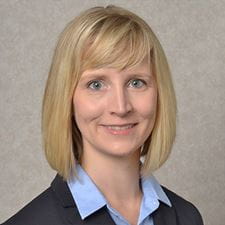 Dr. Agne is an associate professor of Internal Medicine in the Division of Palliative Medicine. Dr. Agne’s research focuses on outpatient palliative care delivery during cancer care. She is the co-director of the Thoracic Onco-Palliative Clinic at The Ohio State University Comprehensive Cancer Center – Arthur G. James Cancer Hospital and Richard J. Solove Research Institute.
Dr. Agne is an associate professor of Internal Medicine in the Division of Palliative Medicine. Dr. Agne’s research focuses on outpatient palliative care delivery during cancer care. She is the co-director of the Thoracic Onco-Palliative Clinic at The Ohio State University Comprehensive Cancer Center – Arthur G. James Cancer Hospital and Richard J. Solove Research Institute.
Rosie Bauder, PhD, MPH, LPCC
 Dr. Bauder is a clinical assistant professor in the Department of Psychiatry and Behavioral Health. Her research interests include interdisciplinary and integrated approaches to suicide research and prevention with a focus on women firearm owners and those with oppressed gender and sexual identities. She is a licensed professional clinical counselor and provides suicide and trauma-focused evidence-based psychotherapy with the Suicide and Trauma Reduction Initiative (STRIVE).
Dr. Bauder is a clinical assistant professor in the Department of Psychiatry and Behavioral Health. Her research interests include interdisciplinary and integrated approaches to suicide research and prevention with a focus on women firearm owners and those with oppressed gender and sexual identities. She is a licensed professional clinical counselor and provides suicide and trauma-focused evidence-based psychotherapy with the Suicide and Trauma Reduction Initiative (STRIVE).
Carrie Davenport, PhD
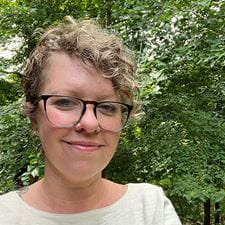 Dr. Davenport is a postdoctoral research fellow in the Department of Otolaryngology - Head and Neck Surgery. Her research focuses on parental self-efficacy in parents and caregivers of children who are deaf/hard-of-hearing, parent-child interaction, and language development. She is currently funded through PCORI to build the capacity of families of deaf/hard-of-hearing children to engage in the research process.
Dr. Davenport is a postdoctoral research fellow in the Department of Otolaryngology - Head and Neck Surgery. Her research focuses on parental self-efficacy in parents and caregivers of children who are deaf/hard-of-hearing, parent-child interaction, and language development. She is currently funded through PCORI to build the capacity of families of deaf/hard-of-hearing children to engage in the research process.
Amanda Gusovsky Chevalier, PhD, MPH
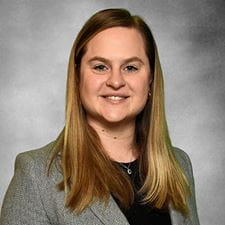
Rachael Hawthorn, MD, PhD
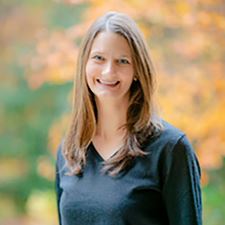 Dr. Hawthorn is a postdoctoral scholar whose work focuses on improving preventive service delivery through a better understanding of how health system organization and processes affect the provision of preventive care during individual clinical encounters. She is interested in applying qualitative inquiry and mixed methods research designs to explore ways to improve the experience of preventive service delivery for patients and clinicians across community and health care settings. Dr. Hawthorn received her MD and PhD in health services research from Case Western Research University School of Medicine. She did her preventive medicine training at University Hospitals and Case Western Reserve University through the Department of Family Medicine.
Dr. Hawthorn is a postdoctoral scholar whose work focuses on improving preventive service delivery through a better understanding of how health system organization and processes affect the provision of preventive care during individual clinical encounters. She is interested in applying qualitative inquiry and mixed methods research designs to explore ways to improve the experience of preventive service delivery for patients and clinicians across community and health care settings. Dr. Hawthorn received her MD and PhD in health services research from Case Western Research University School of Medicine. She did her preventive medicine training at University Hospitals and Case Western Reserve University through the Department of Family Medicine.
Marium Husain, MD
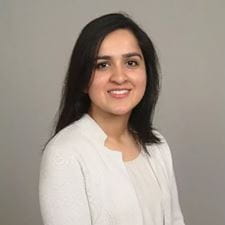 Dr. Husain is a medical oncologist in the Department of Internal Medicine's Division of Medical Oncology. Her research focuses on quality-of-life metrics and assessment tools in the sarcoma population. She received her MD from The Ohio State University College of Medicine and her MPH from Wright State University College of Medicine. She is also the president of the national non-profit Islamic Medical Association of North America (IMANA).
Dr. Husain is a medical oncologist in the Department of Internal Medicine's Division of Medical Oncology. Her research focuses on quality-of-life metrics and assessment tools in the sarcoma population. She received her MD from The Ohio State University College of Medicine and her MPH from Wright State University College of Medicine. She is also the president of the national non-profit Islamic Medical Association of North America (IMANA).
Matthew Lee, MD
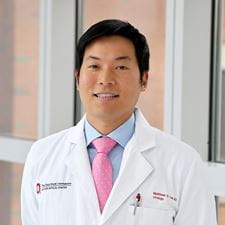 Dr. Lee is a clinical assistant professor in the Department of Urology. He completed a fellowship in endourology (endoscopic urology), and his clinical interests are in benign prostatic hyperplasia and nephrolithiasis. He is interested in using large datasets to understand prevalence of disease and studying surgical practice patterns, i.e., health care utilization. He is also interested in studying patient-centered outcomes after endourologic surgery. He is currently pursuing a Masters in Public Health with a focus in clinical translational research.
Dr. Lee is a clinical assistant professor in the Department of Urology. He completed a fellowship in endourology (endoscopic urology), and his clinical interests are in benign prostatic hyperplasia and nephrolithiasis. He is interested in using large datasets to understand prevalence of disease and studying surgical practice patterns, i.e., health care utilization. He is also interested in studying patient-centered outcomes after endourologic surgery. He is currently pursuing a Masters in Public Health with a focus in clinical translational research.
Patrick Quinn, MD
Dr. Quinn is a general surgery resident at The Ohio State University engaged in research in the field of hepatopancreatobiliary surgery and surgical oncology. His primary research interests include the time toxicity of cancer therapy, the cost-effectiveness of surgical interventions, and reducing barriers to care. Dr. Quinn obtained his medical degree from Rutgers New Jersey Medical School, and he is currently pursuing a Master of Public Health degree.
Alexander Ulintz, MD

Dr. Ulintz is an emergency medicine physician with an interest in community paramedicine and mobile integrated health care. Through his primary research in post-overdose harm reduction via emergency medical services clinicians, he seeks to understand how prehospital providers can impact public health outcomes. As such, he is currently pursuing his Master of Public Health degree.
Ayo Adesanya, MD, PhD
 Dr. Adesanya is an instructor in the Department of Family and Community Medicine at The Ohio State University. He is excited to focus on the confluence of society, medicine, and science as a primary care physician-scientist. He has clinical interests in cardiovascular health, and his research aims include studying biological mechanisms to prevent cardiovascular disease and reduce associated disparities.
Dr. Adesanya is an instructor in the Department of Family and Community Medicine at The Ohio State University. He is excited to focus on the confluence of society, medicine, and science as a primary care physician-scientist. He has clinical interests in cardiovascular health, and his research aims include studying biological mechanisms to prevent cardiovascular disease and reduce associated disparities.
Rachel D'Amico Gordon, MD
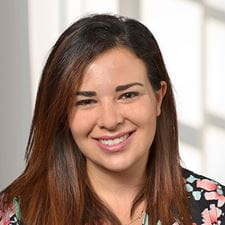 Dr. Gordon is an Internal Medicine-Pediatrics physician with an interest in studying and reducing disparities in women’s health. Her primary research focuses are in postpartum transition to primary care and improving follow up of gestational diabetes. She is currently pursuing her Master of Public Health degree.
Dr. Gordon is an Internal Medicine-Pediatrics physician with an interest in studying and reducing disparities in women’s health. Her primary research focuses are in postpartum transition to primary care and improving follow up of gestational diabetes. She is currently pursuing her Master of Public Health degree.
Marion Were, MD
 Dr. Were is an Academic General Pediatric Fellow at Nationwide Childrens Hospital. She has an interest in immigrant health and access to health care with the goal of creating a more equitable health system and is currently pursuing a Master of Public Health.
Dr. Were is an Academic General Pediatric Fellow at Nationwide Childrens Hospital. She has an interest in immigrant health and access to health care with the goal of creating a more equitable health system and is currently pursuing a Master of Public Health.

